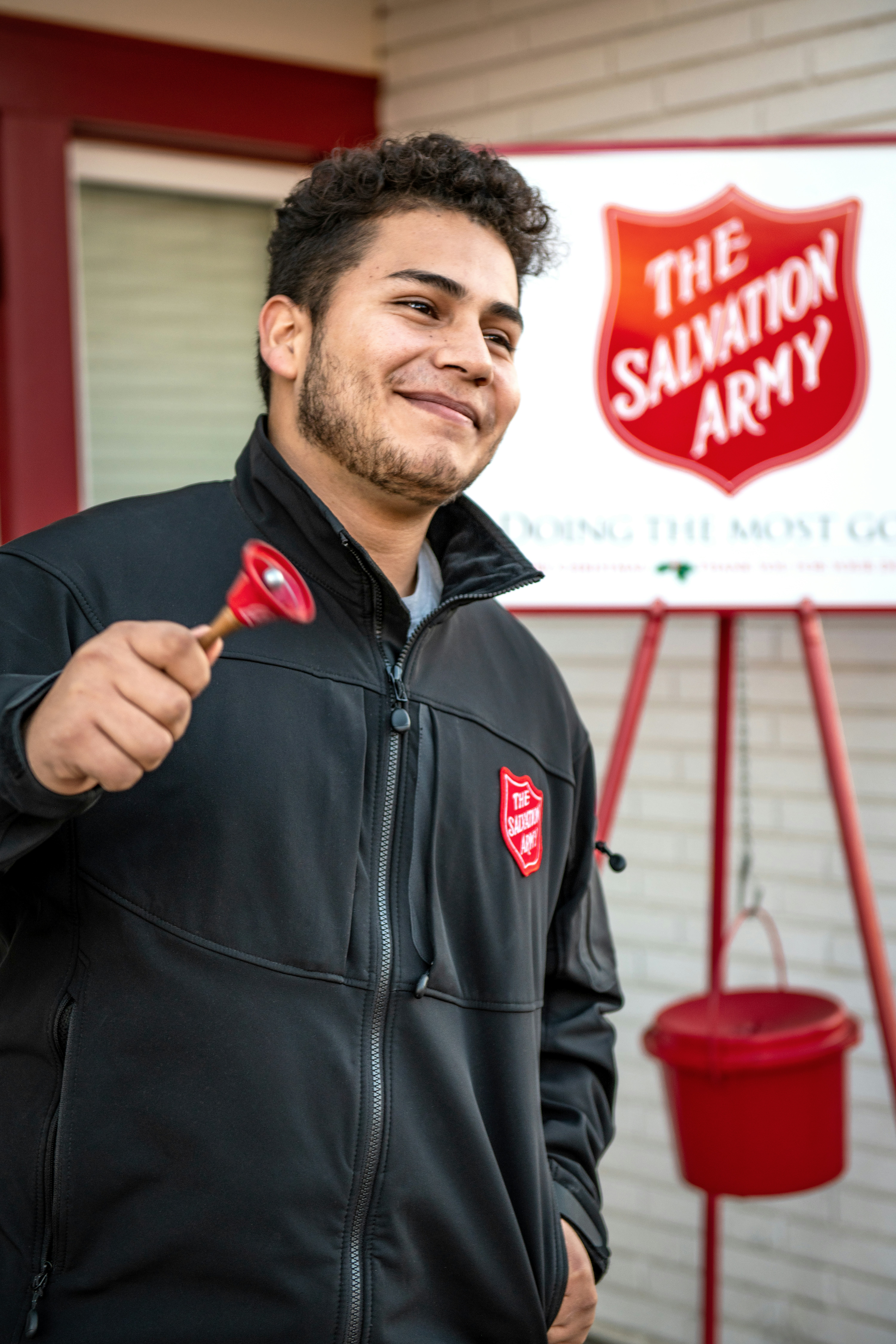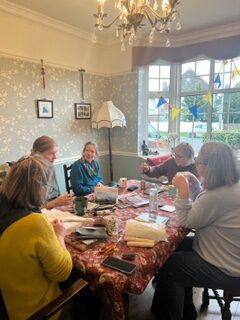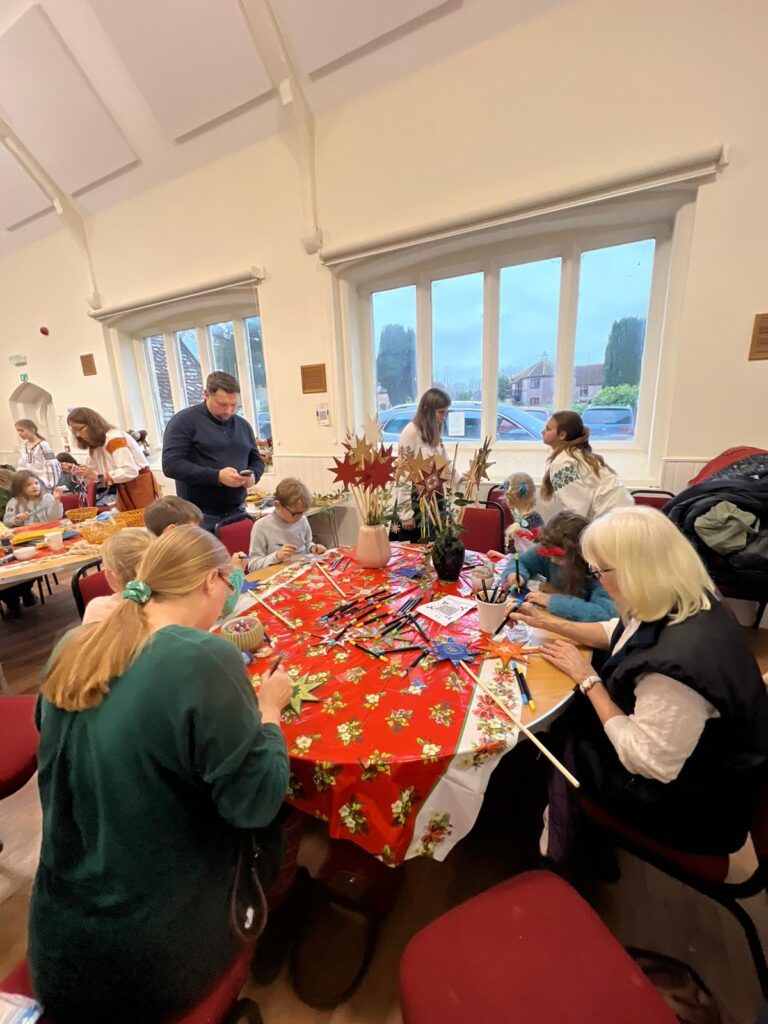This week marks the nadir of the year, with Blue Monday falling on the 15th. Festivities over and days still short, we are all feeling a bit low. For most of us, this will pass in a few weeks as the spring flowers burst into bloom and we wake to sunlight instead of darkness.
For many others though, loneliness is a way of life. It is estimated that chronic loneliness affects around 3.83 million people or 7.1% of the adult population. (Campaign to End Loneliness). This impacts their mental and physical health and the well-being of the nation. Those living with health conditions and in deprived areas are the most seriously affected and although the problem may seem overwhelming, I do believe that we can all play a small part in alleviating this form of suffering.
Reaching out to the isolated
I am blessed with so many friends and family who selflessly connect with others. Whether it is helping at food banks, assisting the elderly with tasks or buying shopping for a sick friend, they are all bringing a great deal of joy and fellowship to those who need it.

And if your schedule has no room for volunteering, there are plenty of organisations happy to take your donations. These are as necessary as the volunteers themselves.
With need so overwhelming, it is best to start small. A text or call to someone you know who is isolated, a visit if you have time, can transform a lonely day. I know I could not have made it through my various health crises without the constant and loving messages that helped be through the worst.
The national issues which exacerbate loneliness: poverty, ethnicity and long-term health conditions are not always something we can personally affect. We can, however, vote for MPs who take their needs seriously and campaign for fairer and better conditions.
Eating together
The best way to start is close to home. Something as simple as a shared meal can do wonders for alleviating loneliness and brings a plethora of benefits to children.
When we eat together, we take time to talk, to hear each others’ stories and concerns. We feel valued and connected and the meal itself, however simple, becomes elevated. I’d rather eat beans on toast with my family than a gourmet feast on my own.

Image: Karen Costello-McFeat
And living alone is no barrier to enjoying this form of togetherness. I have been truly inspired by a number of single friends who regularly get together for a shared meal or who bring each other extras from their own cooking or baking. Few things are more wonderful than unexpected homemade cookies!
And if cooking for a crowd seems daunting, more and more of us have realised that we don’t have to do it all. My craft friends were round on Monday for candle making and lunch. We each brought a course or part of one and we had a wonderful repast. No-one had the stress of planning everything and we each enjoyed the variety of different contributions.
Making together
Next to eating together, my favourite activity is making together. Each Monday, I meet with friends to do various crafts: some sew, some paint, draw or create. We drink coffee and share stories and hopefully, end the session with something to show for our ‘hard work’.
My friend Jane and I had attended an art workshop and when it ended, we still wanted to do something. So craft club was born.
Of course, there are an infinite variety of courses on offer, but the costs can sometimes be prohibitive. That said, I have enjoyed numerous courses over the years and found quietly working together to be a great way to connect with others over a shared enthusiasm.

When Jeff, Mariia and I were making chocolate, my husband said that what made it special was that we were doing it as a group. Though much has been written about the benefits of shared activities, it boils down to the fact that it is simply more fun.
Taking a risk
Every year, my lovely neighbours, the Morrisons, put on a brilliant party between Christmas and New Year. They send out the invitations, make elaborate preparations, write quizzes and decorate. Then they wait.
Because offering your company, your home and hospitality involves risk. As anyone who hosts knows, there is a terrible moment when you think everyone will cancel, or that the meal will be a disaster, or that they won’t think much of your home etc etc. Some are so paralysed by this fear that they never host at all.

Image: Mariia Matrunich
And, of course, sometimes things do go wrong. But if you have invited friends, it’s unlikely they will criticise. Hopefully, they will laugh with you over the disaster. It may even make them feel less intimidated by hosting an event themselves.
Making compromises
So what makes us so reluctant to share our experiences? The answer is that to do so involves a lot of compromise. Few of us enjoy capitulating to the wishes of others and the modern world conspires to make such compromise unnecessary.
Don’t want to watch a programme with your parent/partner? No problem, you can watch your choice on your own TV or iPad. Don’t like what’s on the menu for dinner? A frozen one can be made in the microwave and taken to your room.
Yet, though indulging our whims may temporarily appease our egos, it will ultimately make us unhappy, because we will be increasing the amount of time we spend alone.
Negotiating and agreeing on what we do together strengthens rather than weakens bonds. We do need to ensure that the quiet ones are heard though and their wishes heeded too.
It may mean that sometimes you do/eat/watch something that is not very appealing. However, it is almost certain that it will also open up new ideas and experiences you would have missed on your own.
As a member of a book group for over thirty years, there have been a handful of less than brilliant books, but there have been a plethora of wonderful works that I would never have spotted on my own. And even if I didn’t particularly enjoy the book, the host often warms me to it with their enthusiasm and insight. Thus our meeting becomes transformative.
No man is an island
John Donne’s beautiful sermon establishes that we are interconnected and interdependent. For him, our union rests in the belief that ‘ all mankind is of one author’ (i.e God). Yet, we do not have to be a believer to see the truth in this. Man, like most animals, is a social creature who needs the interaction and support of his fellows to survive.
From the food we eat to the clothes we wear, it is a huge collaborative effort.

If we can remember this, we can perhaps shed our more selfish impulses and find instead the joy that doing things together brings.
